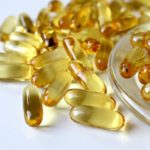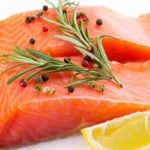Salmon is renowned for being one of the most nutritious foods globally, and it’s fantastic that it’s also available in Vietnam. This fatty fish is not only rich in nutritional value but also helps mitigate certain disease factors.
Salmon is also very tasty, versatile in preparation, and widely available in the market. The nutritional value of salmon may vary slightly between types. For example, farmed salmon tends to have slightly more healthy fats and calories, while wild-caught salmon has a higher protein content. Nonetheless, both types are excellent sources of many essential nutrients, including selenium, phosphorus, and vitamin B, along with offering superior health benefits.

Nutritional value may differ slightly between salmon types.
Rich in Omega-3 Fatty Acids
Salmon is known to be one of the leading sources of long-chain omega-3 fatty acids, including eicosapentaenoic acid (EPA) and docosahexaenoic acid (DHA). Just 100g of farmed salmon provides approximately 2.3g of long-chain omega-3 fatty acids, while wild salmon offers around 2.2g for the same serving size.
Unlike most fats, omega-3 is considered “essential,” meaning you must obtain it from your diet as your body cannot produce it. Studies have shown that EPA and DHA provide significant health benefits, including reducing inflammation, lowering blood pressure, decreasing cancer risk, and improving the function of the cells lining your blood vessels.
A meta-analysis of 22 studies found that regular supplementation of EPA and DHA could significantly improve arterial function, especially in smokers, overweight individuals, or those with high cholesterol or metabolic syndrome.
Excellent Source of Protein
Salmon is a rich source of high-quality protein. Similar to omega-3 fatty acids, protein is an essential nutrient that you need to obtain from your diet. It plays a crucial role in various bodily processes, including injury recovery, maintaining strong bones, and preserving muscle mass during weight loss and as you age.
Recent studies suggest that for optimal health, each meal should contain at least 20 to 30g of high-quality protein.

Salmon is a rich source of high-quality protein.
Reduces Risk of Heart Disease
Salmon’s ability to boost omega-3 fatty acid levels in the blood is the primary reason it helps lower the risk of heart disease. Many people today experience an imbalance between omega-6 and omega-3, and when this balance is not maintained, the risk of heart disease increases.
A previous study showed that consuming two servings of farmed salmon per week could increase blood omega-3 levels by about 8-9% and decrease omega-6 levels within just four weeks.
Additionally, several other studies indicate that eating fish regularly is associated with reduced triglyceride levels and improved other risk factors related to heart disease.
Anti-Inflammatory Properties
Many experts believe that inflammation is the root cause of most chronic diseases, including heart disease, diabetes, and cancer. Some studies have shown that consuming salmon, along with other seafood, can help reduce certain markers of inflammation.
Specifically, a study of 4,105 individuals found that regular fish consumption was associated with lower white blood cell counts, a common measure of chronic inflammation.
Furthermore, another review published in 2014 concluded that fish oil supplementation could significantly reduce the levels of specific inflammation markers.

Some studies suggest that consuming salmon and other seafood can help reduce inflammation.
Brain Health Benefits
Mounting research indicates that including salmon in your diet can support improved brain function. Both fatty fish and fish oil have been shown to positively impact brain health during pregnancy, slow cognitive decline, and maintain brain function.
A review found that consuming at least two servings of fish per week (with each serving being approximately 85g) was associated with a 10% lower risk of developing memory loss and a 30% reduced risk of Alzheimer’s disease.
Unlock 8 Benefits with a Daily 5-Minute Jog
Living a hectic lifestyle can make fitting in time to exercise difficult. However, studies have revealed that even just 5 minutes of jogging a day can lead to positive outcomes for your health, including a decrease in the risk of developing cardiovascular disease, extending your life span by up to 3 years, or even reducing the susceptibility to heart disease.
“3 Simple Steps to Remove the Fishy Smell of Salmon”
Are you looking for ways to get rid of that unpleasant fishy smell associated with salmon dishes? If so, we have some useful tips that can help you make a delicious and healthy meal without the fishy odor. Keep reading to learn our easy-to-follow suggestions for removing the odorous smell from salmon dishes!





































